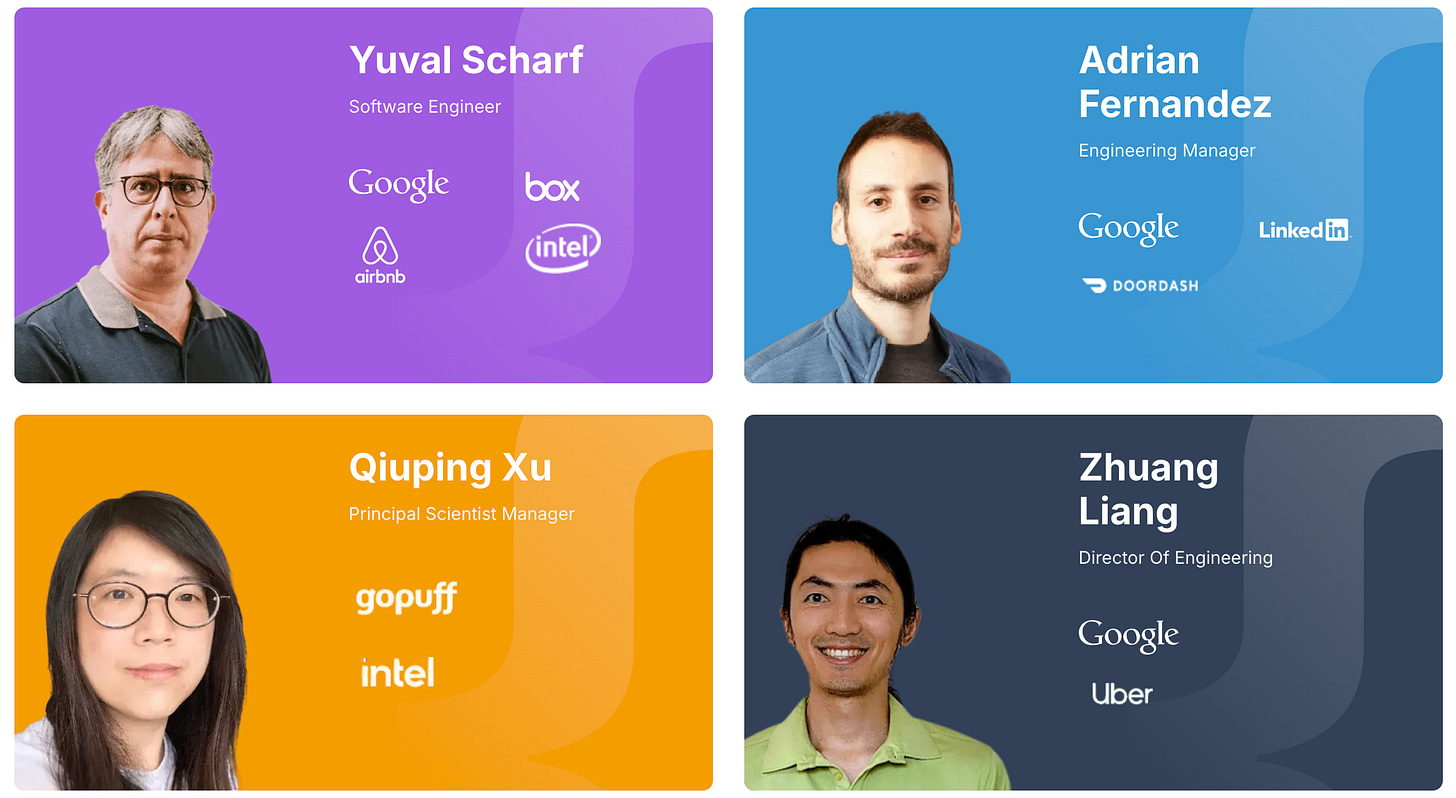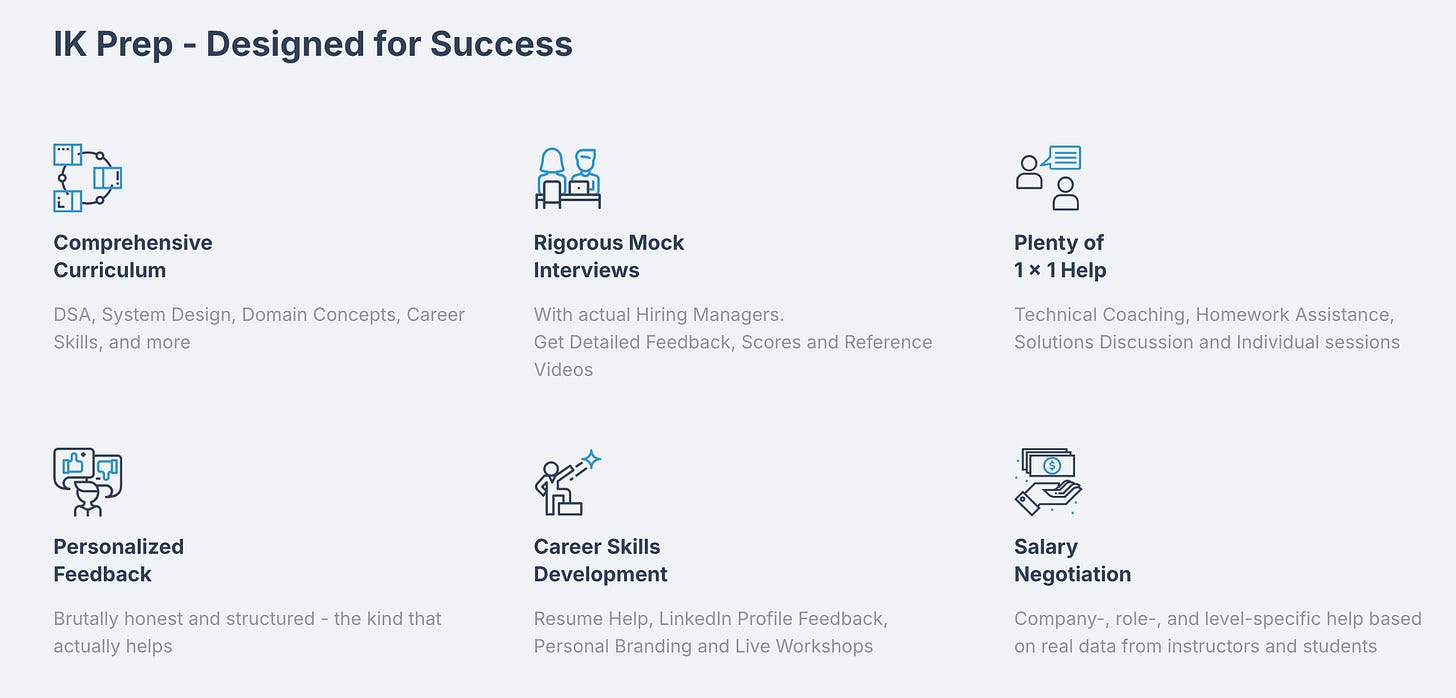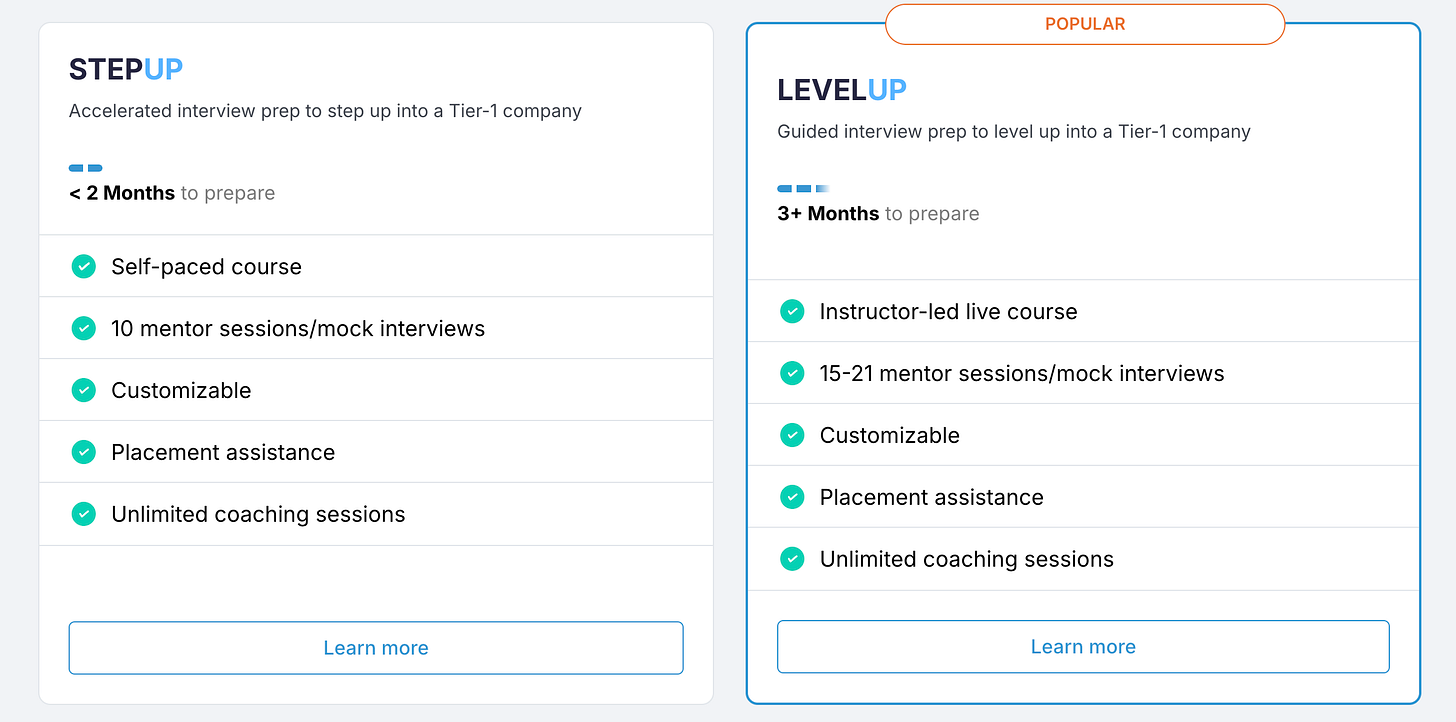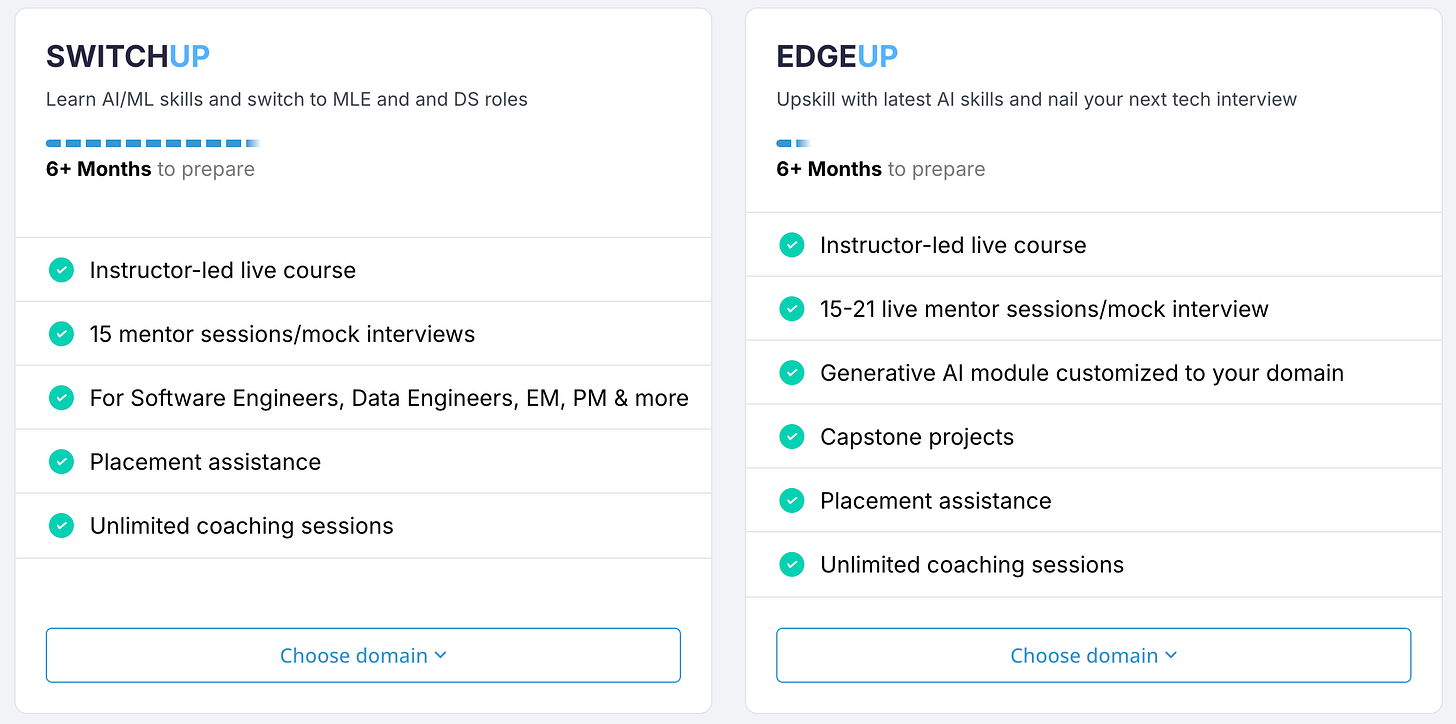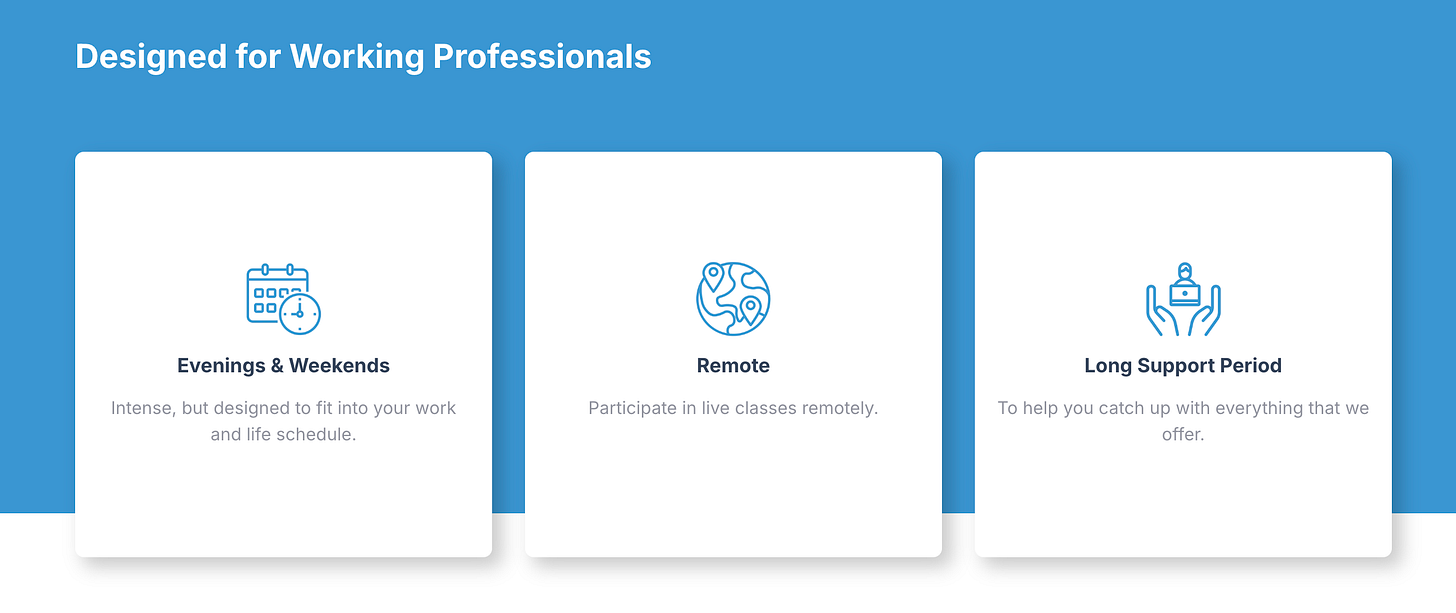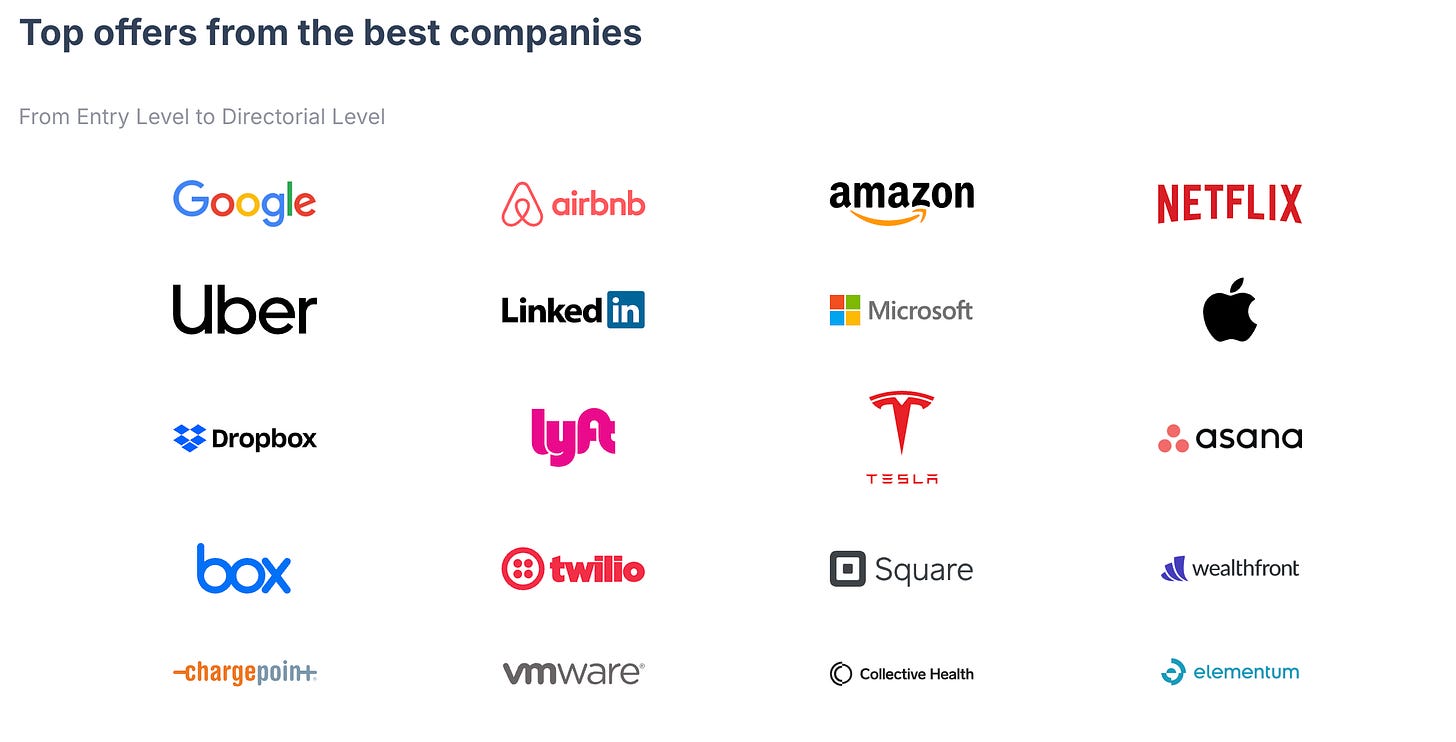From Skills to Salary: The Real ROI of Interview Prep
Today’s featured startup is turning weekend learning into million-dollar job offers.
Project Overview
At first glance, Interview Kickstart might seem like just another set of training programs for various computer science roles.
But the name says it all — the goal isn’t to learn something, it’s to crack the interview and land the job.
To make that happen, the platform brings in instructors and mentors who are current employees at top-tier tech companies like Google, LinkedIn, and Airbnb. Today, more than 500 such experts work with the platform.
Alongside standard coursework in a chosen field, the program includes career coaching, salary negotiation lessons, and personalized feedback on progress. One of the standout features: mock interviews with the same experts, designed not only to simulate the pressure and style of real interviews but also to expose weak points that need extra work.
The courses come in four levels:
Fast-track prep (under 2 months): Includes only pre-recorded lessons, mentorship, and mock interviews.
Skill upgrade (2+ months): Live classes but no mock interviews — aimed at improving current job performance.
Big tech prep (3+ months): Includes mock interviews and even guidance on getting work visas.
Switching to AI/ML/data science (11+ months): Also includes mock interviews and visa support.
It’s not cheap though — prices range from $2,500 to $10,000 depending on level and specialization.
Founded in 2014, Interview Kickstart grew profitably without outside funding. Over 17,000 students have gone through the programs, with average post-course salary bumps of 66.5%. One graduate reportedly landed a $1.2 million/year job offer. On average, grads receive 18 job offers.
Now, for the first time, Interview Kickstart has raised outside funding — $10 million from an Indian VC fund — to expand marketing and test India as a second target market. Currently, almost all of its revenue still comes from the U.S.
What’s the Gist?
Interview Kickstart is scaling up because demand is soaring. Out of the roughly 20,000 total students since 2014, a full 5,000 came just in the past year.
One reason: a new course track launched a year ago that helps software engineers pivot into AI, machine learning, and data science roles. So far, around 2,000 students have enrolled (or are still enrolled) in these new programs.
What sets Interview Kickstart apart is its laser focus on experienced professionals — folks with 5 to 20 years of experience, who already have jobs. That’s why classes and mentorship sessions are held on evenings and weekends, so students don’t have to quit their day jobs.
The goal isn’t to get any job — it’s to level up into a better one. A similar role at a higher-tier company often pays 2–3x more, but only if the candidate can meet that company’s high bar.
So the real promise isn’t “we’ll teach you X” — it’s “we’ll help you land a job that pays more for what you already know.”
Interview Kickstart promotes an average salary increase of 53% in some places and 66.5% in others, but the underlying message is the same: this is about outcomes, not curriculum.
And the only way to get that kind of outcome is to ace those tough interviews. Hence, the heavy emphasis on mock interviews — not just as practice, but as a diagnostic tool.
There’s even a safety net: students who attend sessions diligently and pass mock interviews but still fail to find a job are eligible to get 50% of their tuition refunded.
More broadly, the idea of selling “interview success” — rather than “learning stuff” — is gaining traction across tech education.
Take InterviewBit, for example — a similar Indian startup that raised $66.5 million. Or Formation, which started with a broad “career development” pitch but now markets itself as interview prep with AI. They raised $5 million.
Then there’s Interviewing — a startup that doesn’t teach anything at all. It simply sells mock interview sessions with tech experts. In 2021, those interviews started at $120; now it’s $225 and up. Clearly, the market is growing — and willing to pay.
Key Takeaways
1. Sell outcomes, not process.
The real value isn’t in the curriculum — it’s in the result: successfully passing the interview. If your startup is still selling “learning” or “training,” it might be time to pivot the pitch.
2. Focus on seasoned professionals, not just beginners.
Most edtech startups target newcomers with promises like “get into tech.” But there’s a huge opportunity in helping mid-career professionals level up — either by moving to a higher-tier company or by switching to a more lucrative specialization like AI.
3. Don’t just “teach” — help with what’s hard to self-learn.
Experienced professionals can learn new skills on their own. What they struggle with is breaking into elite companies or navigating a career pivot fast. That’s where your product can shine — with mock interviews, mentorship, or structured transitions.
4. Courses for professionals can charge more — and justify it.
Pros already have income and are willing to invest in big salary bumps. High ticket prices allow you to offer more hands-on support and personalized guidance — without burning money on low-quality leads or predatory financing schemes.
5. There’s a broader play here.
Upskilling isn’t just for coders. Startups like Escalate (which raised $1.4M) help “blue-collar” workers move from server to shift manager, cashier to team lead, and so on — solving both employee churn and leadership pipeline gaps.
Bottom line:
Career acceleration — not just skill acquisition — is becoming a massive category. But to win in this space, you need to pinpoint what makes the leap hard — and offer a clear, believable path to making it happen.
Company info:
Interview Kickstart
Website: https://interviewkickstart.com/
Last funding round: $10 million, 26.02.2024
Total funds raised: $10 million after 1 round




